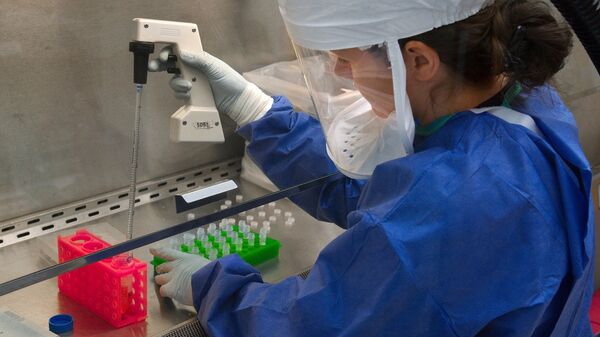Prospect surveyed and collated anecdotal testimony from its members on their Brexit concerns, finding 86 percent of respondents were dissatisfied with government preparations for life outside the European Union, and 69 percent said uncertainty about Brexit had negatively affected their organization's ability to plan and undertake long-term projects. Freedom of movement was also a major concern, with over 90 percent supporting guaranteed rights for EU nationals to stay in the UK.
#BrexitBrainDrain We'll be in Parliament today launching our booklet setting out members' concerns about #Brexit https://t.co/bsgmbEX0o0 pic.twitter.com/oa2ab1tRmb
— Prospect Union (@ProspectUnion) March 7, 2017
Around 64 percent feel less secure in their employment since the EU referendum, and a mere 23 percent are confident their organization has the staff and skills to inform and support government negotiations on Brexit and take on new responsibilities that leaving the EU might bring.
Moreover, concerns about Britain's potentially diluted role in major science projects in the wake of Brexit have led 11 percent of science, technology, engineering and mathematics professionals planning their own exits from the UK, with a further 22 percent undecided about whether they wish to remain, according to the union.
UK science & engineering needs certainty over funding and collaboration on #Brexit @ProspectUnion #brexitbraindrain https://t.co/VtXMOaWWUk pic.twitter.com/TK3tWt1fEq
— Andrew Pakes (@andrew4mk) March 7, 2017
A representative example included in the union's report is that of Dr. Amelie Kirchgaessner, an atmospheric scientist at the British Antarctic Survey (BAS). The Survey is currently involved in an EU project to locate an ice drilling site, where scientists hope to extract a 3 kilometer-deep ice core — the project could extend the climate record, currently 800,000 years, to 1.5 million years. But the BAS' involvement in the future drilling mission has been far from certain ever since June 24, 2016.
I'm Dr. Amélie Kirchgaessner, an #actuallivingscientist studying the role of clouds in the climate system in and around Antarctica. pic.twitter.com/akaB6orv3G
— Amelie Kirchgaessner (@PolarAmelie) February 4, 2017
Moreover, Dr. Kirchgaessner is troubled by the shift in public sentiment towards non-UK nationals post-Brexit.
"Due to the increased xenophobia in the general population, I personally don't feel welcome in the UK any longer. This is emphasized by the government's position. Instead of strongly condemning these tendencies, it seems to be silently endorsing them," Dr. Kirchgaessner said.
In autumn 2016, Prime Minister Theresa May pledged to ramp up funding for research and development to an extra £2 billion (US$2.5bn) annually by 2020. The Treasury has also promised to underwrite grants from the EU's flagship research program, Horizon 2020, secured while Britain is still a member of the EU. The measures are expected to financially compensate the potential loss of about £1.2 billion (US$1,5bn) in research funding that British universities currently receive from the EU.
However, Prospect warn the impact of Brexit on science goes beyond funding. It could leave British scientists playing an at-best secondary role in terms of influencing the direction of projects.
For example, scientists and engineers based at Oxfordshire's Rutherford Appleton Laboratory (RAL) have made major contributions to building and testing satellites for the European Space Agency's Copernicus Earth Monitoring program, the world's largest environmental monitoring project. Their work falls under the umbrella of the ESA, so when Britain exits the EU, it is unclear whether staff will be able to access and utilize their findings — despite playing an instrumental role in building the hardware.
"If we lose our status as full collaborators in Copernicus, we may lose access rights to the data. We would certainly lose our right to influence the direction of the program," said one anonymous RAL scientist quoted in the report.
Other major projects affected include the Joint European Torus project, which explores the potential of fusion power. It is manned by around 350 scientists from 40 countries in EUROfusion, the European Consortium for the Development of Fusion Energy, and hosted in Britain — although this is contingent on the UK's membership of Euratom, which the government is committed to withdrawing from when Britain leaves the EU, despite industry protestations.
"Continued uncertainty for our science funding and collaboration is not neutral. It damages relationships day-by-day and brings a high emotional cost. The government must make tangible commitments to end uncertainty and set a positive path to future economic success," said Prospect Deputy General Secretary Sue Ferns.


